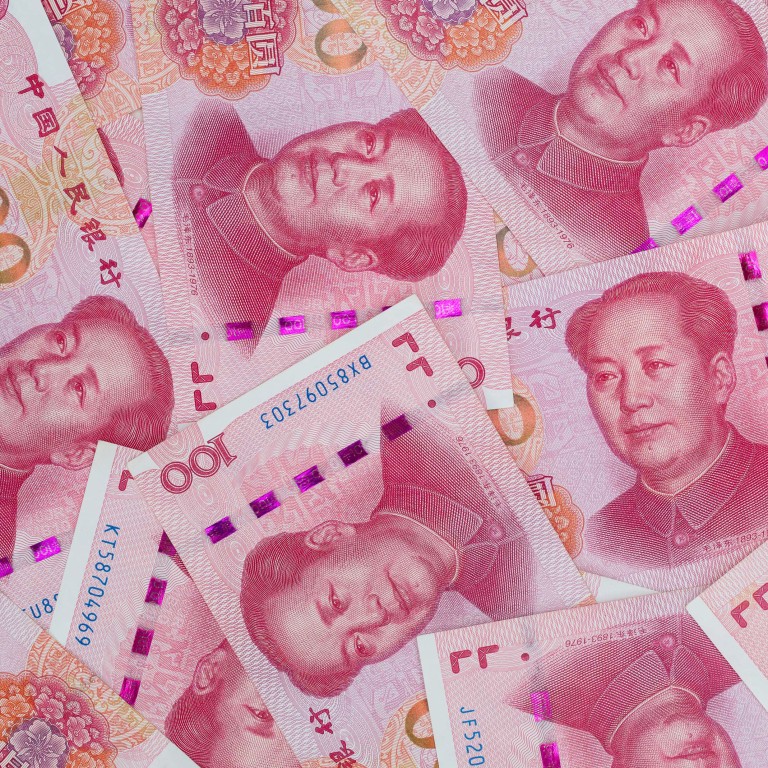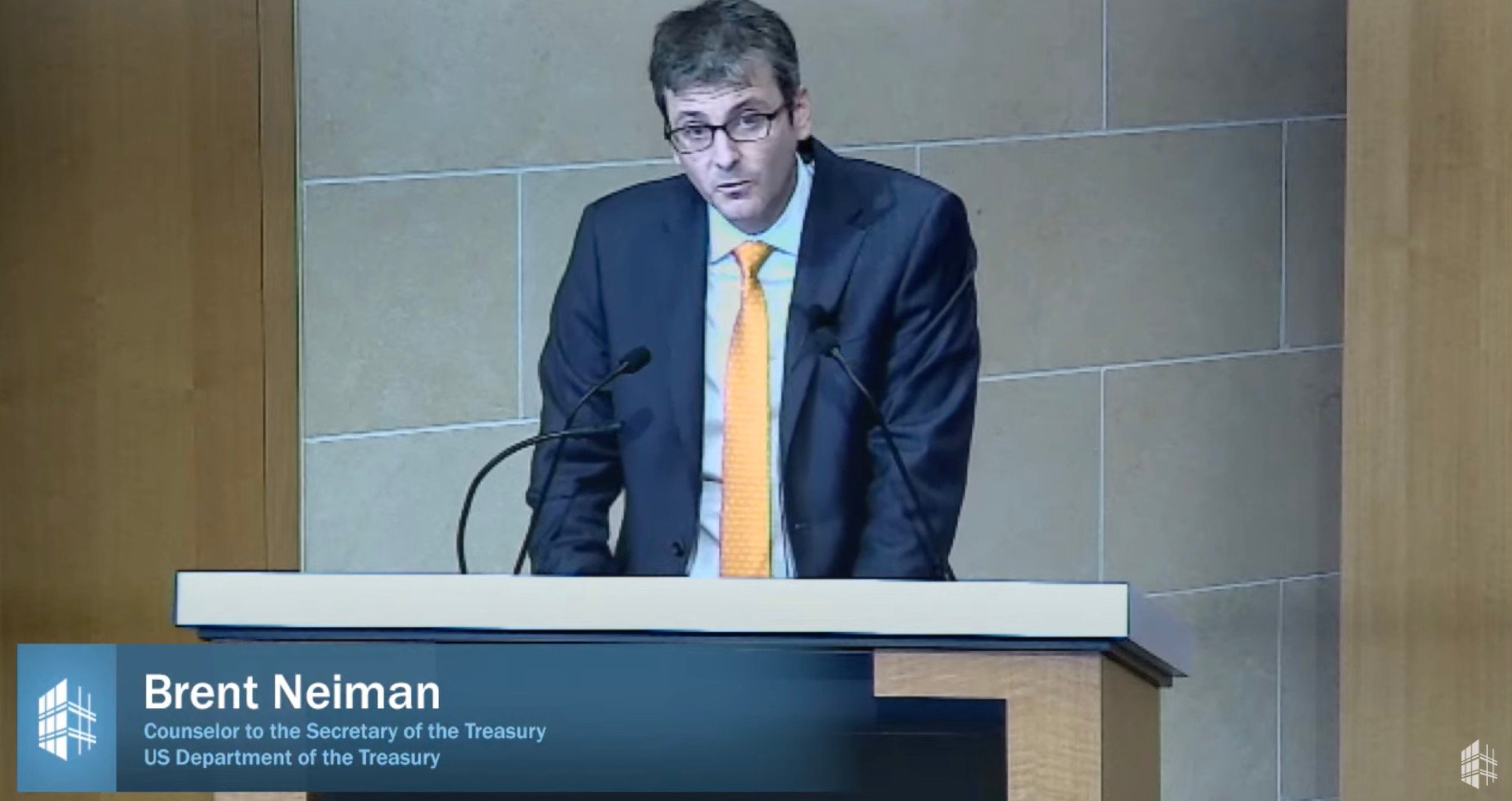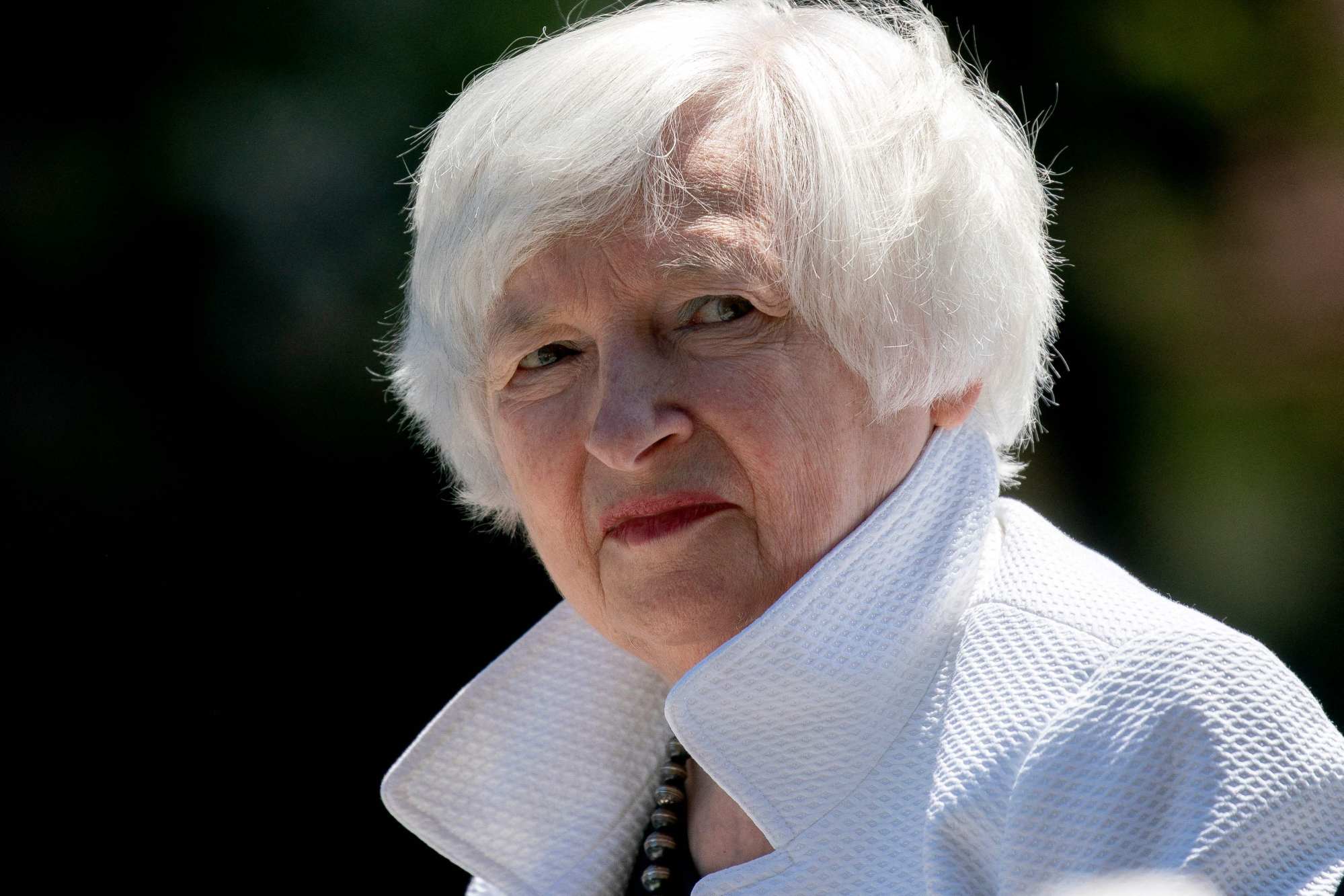
China’s debt practices have caused ‘suffering’, hurt multilateral restructuring: US Treasury official
- Dozens of countries may be burdened with debt-servicing problems, lower growth and underinvestment, top adviser Brent Neiman warns
- Notes China’s ‘enormous scale’ as a lender, citing estimates of up to US$1 trillion worth of outstanding official loans
“These delays carry suffering and uncertainty, may discourage others from requesting needed treatments, and preclude the best outcomes,” Brent Neiman, counsellor to Treasury Secretary Janet Yellen, said in a broadside against Beijing’s international lending practices.
China’s embassy in Washington did not immediately respond to a request for comment about Neiman’s speech.
Implemented to help some 70 countries in danger of default, the framework was agreed upon at the same time by the Paris Club, a group of 22 countries that coordinates on reaching debt-restructuring deals with the nations they lend to so that all creditors are affected equally.

Neiman also criticised China for agreeing in 2020 to only US$2.4 billion in new lending as a financing assurance for Ecuador’s IMF programme and to offset coming interest payments due to Chinese creditors, while private creditors agreed to revamp US$17.4 billion worth of debt.
“Rather than delivering the promised new financing in a matter of months, China only came to terms with Ecuador this past week,” Neiman said.
After bashing China loans, Kenya’s president signals reverse course
“Most of [the lending] is for projects that companies in debtor countries have demanded, and at the same time they have economic benefits and are beneficial to the country in the long run,” Zhou said.
And in a study released last week, Boston University’s Global Development Policy Centre reported it had compiled a database cataloguing 212 interest-free loans totalling US$2.22 billion between 2000 and 2020 in 38 African countries.
Of the US$159.98 billion China had advanced to African countries in the past two decades, interest-free loans accounted for only 1 per cent, the study noted.

Neiman said China’s preference for lengthening debt maturities or grace periods instead of writing down debt was exacerbating the risk of systemic debt crisis. He added that bilateral debt loads owed to Beijing by as many as 44 countries amounted to more than 10 per cent of their gross domestic product.
Restructurings by the Chinese government “typically do not resolve the debt overhang and can stoke uncertainty about the need for repeated rescheduling”, Neiman said. China’s pervasive use of non-disclosure agreements in its loans to low- income countries significantly hinders multilateral restructuring efforts, he added.
“Does the approach of any one country in this process matter all that much?” asked Neiman, who cited estimates that the total stock of outstanding official Chinese loans added up to as much as US$1 trillion.
“In fact, China’s enormous scale as a lender means its participation is essential.”

